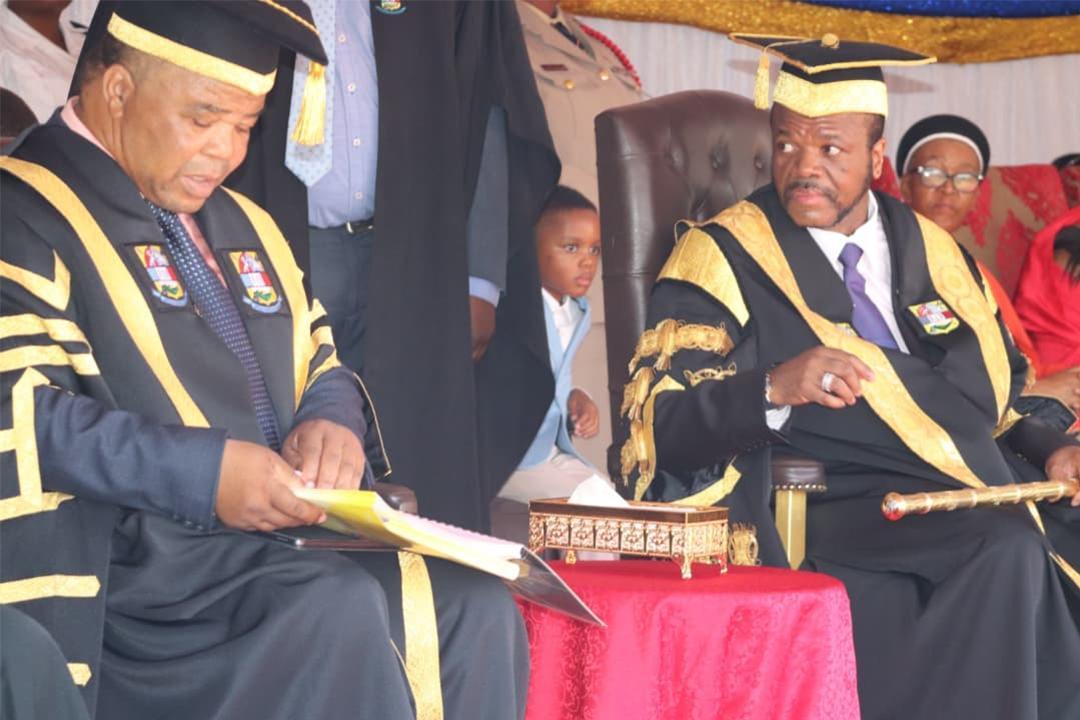Africa-Press – Eswatini. Eswatini’s push toward becoming a knowledge-driven economy was on full display at the University of Eswatini’s 43rd graduation ceremony.
Vice Chancellor Professor Justice Thwala detailed how UNESWA is spearheading research hubs, digital innovation, and entrepreneurship to address unemployment and global competitiveness.
Among the university’s highlights are the Artificial Intelligence Academy, Centre for Climate Change and Sustainability, Centre for Sustainable Energy Research, and a new Data Analytics and AI Centre. Funded by partners like UNDP and the European Union, these initiatives aim to equip graduates with critical thinking and practical research skills while tackling pressing issues like youth unemployment.
Thwala also showcased the Eswatini Institute for Research in Traditional Medicine (EMIP), which has developed “Vero Veta”, a complementary medicine derived from indigenous knowledge to support HIV treatment. The product has already been trademarked, with investors now being sought for commercialization.
In line with His Majesty King Mswati III’s call for research-led development, UNESWA is also driving the National Research Council, based at Waluseni campus, to coordinate Eswatini’s research agenda. This, Thwala emphasized, is part of the country’s urgent strategy to rely less on donor aid and instead build homegrown solutions.
Digital transformation remains a key pillar, with partnerships such as the Google Cloud initiative, which will enhance public service efficiency and boost digital skills among Eswatini’s youth. “We are determined to produce globally engaged graduates who can innovate, research, and compete on the world stage,” Thwala declared.
The Vice Chancellor positioned UNESWA not only as an academic institution but as an engine of innovation, bridging traditional knowledge with cutting-edge science.
For More News And Analysis About Eswatini Follow Africa-Press







